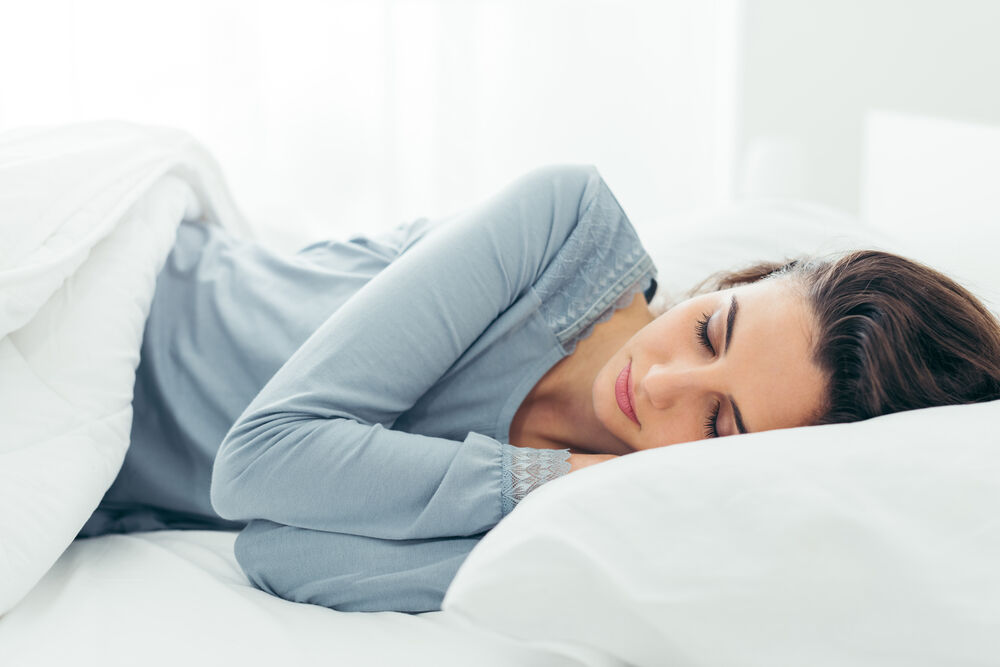Waking up with back pain can turn your day upside down, and surprisingly, the solution might lie in your pillow. The right pillow can make a world of difference in managing and alleviating back pain, ensuring you start each day on the right note. It's not just about comfort; it's about support, alignment, and taking proactive steps to enhance your spinal health. In this article, we'll explore how choosing the perfect pillow for back pain can transform your sleep quality and ultimately, your life. Let's dive into the world of pillows, where comfort meets therapeutic support.
Understanding Back Pain and Sleep
The relationship between sleep and back pain is complex, as your sleeping position, mattress, and pillow can significantly impact chronic back pain. Making the following considerations can help alleviate back pain and improve sleep quality:
Choose the best sleeping position for back pain: Maintain the natural curve of your spine while sleeping. For side sleepers, draw your legs up slightly toward your chest and put a pillow between your legs to align your spine, pelvis, and hips. Back sleepers should place a pillow under their knees to relax their back muscles and maintain the curve of their lower back. Stomach sleepers should place a pillow under their hips and lower stomach, and use a pillow under their head if it doesn't strain their back.(1)
Use supportive bedding: A supportive mattress and pillow can significantly improve comfort and support for people with lower back pain Choose the best mattress and pillow that provide the right balance of firmness and cushioning.(2)
Practice relaxation techniques: Gentle yoga stretches before bed can help reduce low back pain.3 Additionally, practicing relaxation techniques and good sleep hygiene can improve sleep quality and help you sleep better with back pain.(2)
Exercise your core: Regular physical activity can improve sleep quality and help ease back pain.3 Targeted exercises to strengthen your core muscles can also help lower the chances of straining your back.
Medication and treatment: Over-the-counter pain relievers, such as aspirin, acetaminophen, or ibuprofen, can be effective for short-term use.(3) Consult your doctor before taking any medications to ensure they are appropriate for your specific situation.
Address underlying issues: If your back pain persists or worsens, consult a healthcare provider for further evaluation and treatment options.(2)
How Pillows Affect Spinal Alignment
The right pillow is essential for maintaining proper spinal alignment and managing back pain. Here's how pillows can affect spinal alignment and alleviate back pain:
Spinal Alignment: A pillow should keep your head, neck, and spine in neutral alignment. Misalignment during sleep can worsen or cause back pain.(4)
Neck Pain Relief: Pillows that support the neck can significantly help alleviate associated back pain, as tension in the neck often affects the back. Proper alignment can also ensure smoother breathing, which is beneficial for those with neck pain and back pain.(4)
Research has shown that the use of spring and rubber pillows can be effective in reducing neck pain, waking symptoms, and disability, and enhancing pillow satisfaction in patients with chronic neck pain.5
The right pillow height is also crucial. One study comparing three foam pillow heights found that a pillow height of approximately 4 inches offered the best spinal alignment and greatest comfort, leading to the least muscle activity. (4)
The Mayo Clinic recommends using a pillow under your head to support your neck in alignment with your chest and back. If you sleep on your back, place a pillow under your knees to help relax your back muscles and maintain the curve of your lower back.(1)
Types of Pillows for Back Pain
Selecting the right pillow is crucial in managing back pain. Let’s break down the different types of pillows that can offer relief:
Ergonomic Pillows: These are typically designed to contour to the shape of your body, providing support where it's needed most. They help in maintaining proper spinal alignment throughout the night, crucial for those suffering from chronic back pain.
Lumbar Support Pillows: Ideal for those who sleep on their back, these pillows offer additional support to the lower back. They fill the gap between the mattress and your lower back, alleviating stress on the spine, and are especially helpful for those wondering how to sleep with a stuffy nose, as they promote better breathing.
Orthopedic Pillows: These are specifically designed to correct body posture in bed or while lying on any other surface. They provide support tailored to relieve or prevent pain in specific areas of the back and can be crucial for those with spinal conditions.
Memory Foam Pillows: Known for their ability to conform to the pressure and heat of the body. Memory foam pillows provide a balance of support and comfort, adapting to your body shape and providing pressure relief in certain areas, making them a top choice for individuals with back and shoulder pain.
Choosing the Right Pillow for Your Needs
To find the best pillow for managing back pain, consider the following:
Sleeping Position: Back sleepers might prefer a medium-firm pillow, while side sleepers may need a firmer pillow to fill the gap between the neck and mattress. For those with lower back pain, a pillow placed under the knees can provide additional support.
Material and Firmness: Memory foam or latex pillows offer firm support and contouring, beneficial for spinal alignment. Feather pillows, while soft, may not offer the necessary support for back pain relief.
Cervical Pillows: These are designed to maintain the natural curve of the neck and can be particularly beneficial for individuals who experience neck pain along with back pain. They are also ideal for those seeking the best pillows for back sleepers.
In the journey to find back pain relief, never underestimate the power of the right pillow. From ergonomic designs to lumbar support options, the perfect pillow for your unique needs exists. Explore the vast collection at Mancini’s Sleepworld, where quality meets comfort, providing you with the ideal pillow to complement your mattress and ensure you wake up pain-free and refreshed.
Remember, the right pillow is not just an accessory; it's a necessity for those seeking relief from back pain and a peaceful night's sleep. Your journey towards a pain-free back and rejuvenating sleep could very well begin with a visit to Mancini’s Sleepworld, where every pillow is a promise of comfort and relief.
Sources:
1. Mayo Clinic. Sleeping positions that reduce back pain. https://www.mayoclinic.org/diseases-conditions/back-pain/in-depth/sleeping-positions/art-20546852
2. Sleep Foundation. How to Sleep with Lower Back Pain: Finding Comfort and Relief. https://www.sleepfoundation.org/physical-health/how-to-sleep-with-lower-back-pain
3. WebMD. 9 Sleep Tips for Back Pain. https://www.webmd.com/back-pain/sleep-tips-for-back-pain
4. Spine-health. Pillow Support and Comfort. https://www.spine-health.com/wellness/sleep/pillow-support-and-comfort
5. Clinical Biomechanics. The effects of pillow designs on neck pain, waking symptoms, neck disability, sleep quality and spinal alignment in adults: A systematic review and meta-analysis. https://pubmed.ncbi.nlm.nih.gov/33895703/

